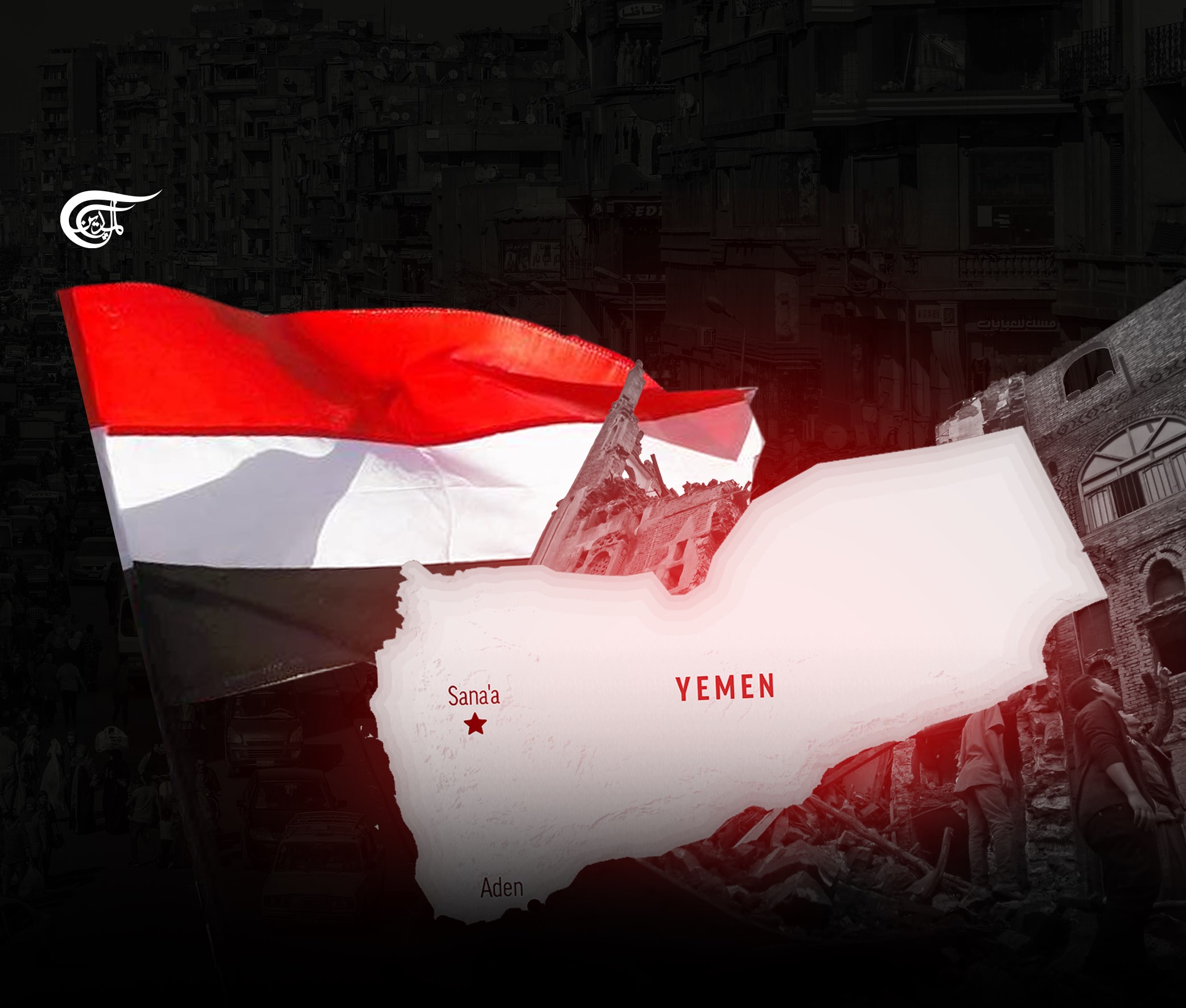Truce in Yemen is falling apart, Reasons and Background
The Saudis were wrong when they thought that a kind of permanent ceasefire with Yemen is possible without coming to terms of political and military realities on the ground.
-

Sanaa accuses foreign companies of using the siege on Yemen to plunder the country’s natural resources making it extremely difficult for the government to pay the salaries of civil servants
Talks to renew the six-month-old ceasefire in Yemen have failed. The truce expired on Oct. 2nd and the two warring sides, Yemen and Saudi Arabia, didn’t agree on further extension. Two Yemeni demands that Saudi Arabia didn’t accept were behind this development: Lifting the blockade imposed on Yemeni ports by the Saudi coalition, and the payment of salaries to Yemen’s government employees.
The Saudis were wrong when they thought that a kind of permanent ceasefire with Yemen is possible without coming to terms of political and military realities on the ground. The Saudis were under severe pressure when they sought a two-month ceasefire with Sanaa’s government and the Ansarullah movement, which started on April 2nd and was renewed twice later on, via UN mediation. Yemen’s improved military capabilities were causing serious losses for them, and their puppet government was failing miserably in all fronts, so halting military operations was the best solution for the Saudis, who are realizing that winning the war in Yemen is an unrealistic target. Their crisis-management policy is two-folded:
- Trying to fix the mess in the ranks of the Yemeni sides affiliated with them. The Saudis removed the puppet Yemeni President, Abed Rabbu Hadi, and installed a new “Presidential Council” instead. By so doing, they hoped to inject new blood and raise the falling morale of the forces fighting against Sana’a government under Saudi leadership.
- Maintaining the status quo in Yemen and extending the armistice indefinitely was an attempt to avoid paying the political price for their failure. The Saudis realize that any real political settlement in Yemen in the current circumstances won’t be in their favor. Ansarullah and the national government in Sanaa stand to gain due to their steadfastness and strong resistance to the aggression. The scenes of Yemeni missiles reaching vital economic facilities and cities deep inside Saudi Arabia were very embarrassing, even humiliating, to the Saudis and they don’t want to see that happening again. Turning Yemen into a sort of “forgotten issue” won’t be a bad idea for the Saudis as long as it’s isolated, under siege and restricted by a truce that keeps Saudi cities and strategic locations unharmed.
Strong Messages from the Yemenis to the Saudi Coalition
A leading member of the political bureau of the Ansarallah movement, Muhammad Al-Bukhaiti, has told the media that Yemen will not be accepting "a permanent or long truce while the US and Saudi aggression and siege continues". Al-Bukhaiti has pointed out that Sanaa "has undergone major development in the field of naval missiles, which will have an active role in resolving the battle in the event that the siege is not lifted”. Al-Bukhaiti added that "the countries of aggression are preventing ships from entering Yemen by force of arms", stressing that the Yemeni forces "will respond with a similar measure”.
Yemeni Defense Minister, General Mohammad Al-Atifi, issued a very strong warning to Saudi Arabia and the United Arab Emirates; “We will never hesitate to bombard very sensitive and important facilities, and we will include them in the list of our future targets”, Yemen’s Al-Masirah television network quoted him saying. “We once again warn the regional countries which support the coalition of aggression that we will employ surprising tactical and strategic methods during the war. We will make the aggressors suffer. . We won’t pay any attention to their cries for help. Enemies are strongly advised not to test our spirit and resilience”, Al-Atifi pointed out”.
Yemeni Foreign Minister Hisham Sharaf called on the UN Security Council to assume its responsibilities and put an end to the Saudi-led military aggression and broad siege, which lack any logical and legal basis. He stressed that the Security Council should not turn into a platform “which justifies and legitimizes Saudi-led aggression” against his country. Sharaf lambasted the UN body’s attempts to “distort facts” and display as if the demands put forward by Sanaa are excessive and unrealistic, stressing that such an approach attests the Security Council’s “collusion with the opposite party” and utter disregard to the ongoing humanitarian catastrophe in Yemen.
Stealing Yemen’s Resources
Sanaa accuses foreign companies of using the siege on Yemen to plunder the country’s natural resources making it extremely difficult for the government to pay the salaries of civil servants. The Saudi-installed puppet government has only limited nominal control over Yemen’s resources and hardly knows of the destination of the funds generated by exporting oil. Sanaa now is making it clear to the foreign companies currently utilizing Yemen’s oil resources and channeling the revenues to Saudi banks, that it’s no longer acceptable; there will be price to be paid. The Supreme Economic Committee in Sana’a announced it has sent final messages to the companies involved in looting the sovereign wealth of Yemen, in order to stop the theft in accordance with a specific deadline. The committee says this will be implemented upon directives set by the President of the Supreme Political Council, Mahdi Al-Mashat.
The committee sent the notice to all companies and entities that the looting of Yemeni sovereign wealth must come to a permanent halt, saying "companies and entities bear full responsibility in the event of non-compliance to stop looting Yemeni sovereign wealth". This was echoed by the spokesman for the Yemeni armed forces, Brigadier General Yahya Saree, who advised foreign companies plundering Yemen's wealth to “take the warning of the leader of the revolution (Sayyed Abdel-Malik Al-Houthi) seriously". He even went further and called on investors in Saudi Arabia and the UAE to “transfer their investments to another country”, stressing that “investment in the UAE and Saudi Arabia is full of risks” for them. In a social media post, Saree said, "My brother investor, in order not to lose, you must transfer your investment from an aggressor country to another, as investing in it is fraught with risks” adding that "the opportunity is there”.
The Oil Factor
From day one, the US played a role in the ceasefire in Yemen that took place in the beginning of April. The international economic crisis resulting from the military conflict in Ukraine between Russia and West, meant that it was very important for the oil production and exporting from Saudi Arabia to continue without interruption. America encouraged the Saudis to go for a truce in Yemen to make sure the oil production sites in KSA are not subjected to Yemeni missiles and attacks. The West, particularly in Europe, need constant Saudi oil to help counter the decreasing Russian gas supplies.
The Yemeni national government, and Ansarullah movement, understand these geo-political developments well, and feel they can press the international community for their case. Ansarullah’s Al-Bukhaiti said that "the demands of the Yemeni people are just", highlighting that "if they are not met, then striking the depths of Saudi Arabia and the United Arab Emirates is within our rights”. Obviously, he was reminding the West of the 2019 attacks on Saudi oil facilities in Eastern KSA that reduced Saudi oil exports by half for a whole week. In the current situation, the West cannot afford another major interruption in Saudi oil exports.
The Humanitarian Issue
A member of Yemen’s negotiating delegation, Abdel-Malik Al-Ajri, expressed his concern about the humanitarian crisis on social media saying "the worry is about the continued deprivation of employees from their salaries for the eighth year." He pointed out that "the idea of agreeing to deprive any employee of their salary is an evil idea." He added that "there are two options, either to pay the salaries of the employees, or to bear the responsibility for the return of the war".
Yemen says it has made its position clear to international officials including the UN mediator and European Union Coordinator for political affairs about the necessity of disbursing the salaries of all employees and pensions, and ending the arbitrary restrictions on the port of Hodeidah and Sana’a airport.
Dr. Aysha Jumaan, president of the Yemen Relief and Reconstruction Foundation, asserted that the blockade "is the main contributor to the spread of starvation and diseases and is considered a war crime. The Yemeni people should not be held hostage to peace negotiations or the truce. The blockade should be lifted unconditionally."
What’s Next?
Considering Yemen’s insistence on changing the terms and refusal to accept the current stalemate, it’s likely that a military escalation between Yemen and KSA is forthcoming. Saudi Arabia isn’t expected to accept Yemeni demands and give in on these two fundamental issues, the ports and the funds, as it knows that could strengthen its adversaries further. However, it is still to be seen how the Biden administration will handle the looming crisis. Will it maintain its backing for Saudi operations in Yemen by providing logistical support, warplane maintenance and arms sales to Saudi forces? Or will it pressure Saudi Arabia in lifting the Yemen blockade and its collective punishment of the Yemeni people?

 Hussam AbdelKareem
Hussam AbdelKareem
 9 Min Read
9 Min Read











